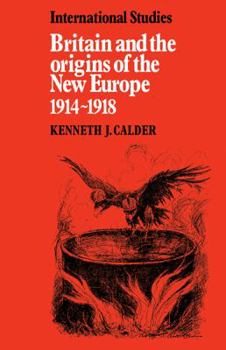Britain and the Origins of the New Europe 1914 1918
(Part of the LSE Monographs in International Studies Series)
Select Format
Select Condition 
Book Overview
In 1914 the British government was not interested in national self-determination in eastern Europe, but by November 1918 it was deeply involved with various eastern European subject nationalities and was committed by implication to their independence. This book attempts to explain this evolution in British policy in the case of the Poles, Czechoslovaks and Yugoslavs, the three most important subject nationalities in eastern Europe. The book is based primarily on the official records of the British government, which have been supplemented with material from private collections. Dr Calder argues that British policy on national self-determination developed not as a result of theoretical speculations but of the wartime relations between the government and the Polish, Czechoslovak and Yugoslav national organizations. This book traces the evolution in British relations with the Polish, Czechoslovak and Yugoslav nationality organizations from August 1914 to November 1918. It shows how the initial contacts were established and how relations developed gradually as the government sought to use these organisations in propaganda, espionage and the formation of military units. It attempts to assess the effects of this co-operation on the attitudes of British officials and the policy of the government.
Format:Paperback
Language:English
ISBN:0521090202
ISBN13:9780521090209
Release Date:November 2008
Publisher:Cambridge University Press
Length:280 Pages
Weight:0.79 lbs.
Dimensions:0.6" x 5.5" x 8.5"
Customer Reviews
0 rating





